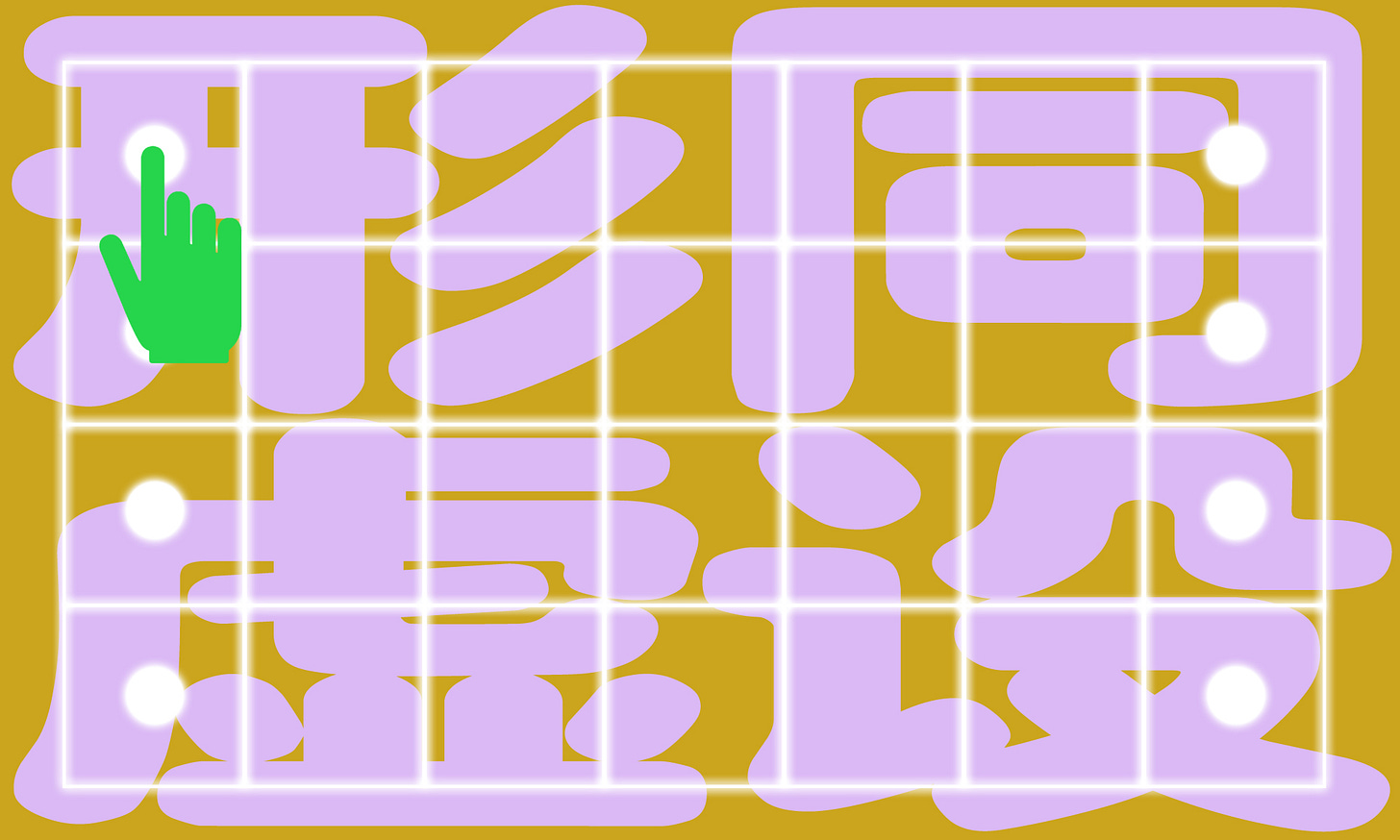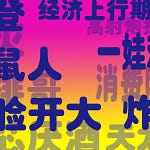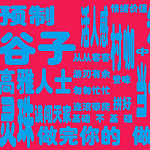Welcome to RealTime Mandarin, a free weekly newsletter that helps you improve your Mandarin in 10 minutes a week.
Subscribe today to get your fluency back, stay informed about China, and communicate with confidence in Chinese — all through immersion in real news.
Giving high school students two-day weekends has sparked debate after some schools in China began implementing the changes, giving students in 10th grade (高一) and 11th grade (高二)—between ages 15 to 17—their weekends back.
Teachers say the move is a "return to the right path" (回归正道), while many parents have a different view, saying it’s bad news for their kids, and for their wallets.
China’s education system is often called the "stuffed duck" model (填鸭式教育), where students are fed large amounts of information and evaluated solely on test scores—all within an intensely competitive and high-pressure environment.
Weekends are spent at school preparing for tests and university entrance exams—the gaokao (高考). Many kids endure six-day weeks, with some only getting one or two days off every month.
But worried parents fear the new measures will only heighten competition in schools, as wealthy families can afford private tutoring, leaving children from poorer backgrounds further behind and widening educational inequalities.
Many also worry about other consequences, from kids spending excessive time on screens to escalating conflicts between parents and children.
This is why in some parts of China, single-day weekends are framed as a "public service" (为民办实事) provided by schools—saving parents the hassle and cost of arranging extra lessons, necessary to keep up with the competition.
Here’s how one frustrated parent put it in an interview:
"With two-day weekends, the competition will only get worse.
Wealthy parents can afford expensive tutoring while the less well-off can’t, which means children from poorer families are less likely to climb up the social ladder through academic success.
And now that extra classes on weekends are cancelled, students have to opt for one-on-one tutoring—this increases the burden rather than reducing it."
“双休以后更卷,有钱家长会高价补课,穷人孩子翻身更难了,而补课班取消,只能一对一补,是增负不是减负。” [2]
On the other side of the debate, which seems to be the majority of sensible commentators in the media, this view is rejected:
Why is it still "news" that high school students have two days off on weekends?
为何高中生周末双休到现在还会成为“新闻”?
They argue returning weekends to students will give them a life beyond school, foster social interaction, and their overall development.
Students complain of relentless pressure, comparing it to China’s gruelling "996" work culture—9am to 9pm six days a week—leaving little time to rest or play. But for them, the school day can be even tougher, known as "611"—starting at 6am and ending at 11pm.
One media commentator puts a well-known phrase into perspective:
"This is supposed to be about 'giving children a head start', but in reality, the starting line keeps shifting.
After running all the way, the winners are never the children—it’s the capitalists and institutions profiting handsomely from the commercialisation of education who win."
这是为了“让孩子赢在起跑线上”,但事实是,这条所谓的“起跑线”根本没有尽头,一路跑下来,赢的从来不是孩子,而是那些通过教育产业化赚得盆满钵满的资本家和机构。 [2]
As we've covered in this newsletter, intense school pressures leave many teenagers struggling with depression, and some have even tragically take their own lives.
The job market for young graduates who have been through this system is also challenging.
Even graduates of top-tier universities say they find it difficult to find work and "remove the scholarly gown of Kong Yiji" (脱下孔乙己的长衫)—a reference to shedding scholarly pride to take on low paid work. Social media discussions reveal many end up unemployed, working as delivery drivers, or becoming so-called "rotten end children" (烂尾娃).
With the rise of DeepSeek and other homegrown AI technologies, many agree the system needs reform to cultivate creative minds, which can’t be done by rote learning.
But when, and how?
Even small steps—like reinstating two-day weekends—face resistance.
That’s what we’re diving into this week!
🎧RTM Podcast Preview🎧
In this week’s RTM Advanced podcast, we’re exploring three colourful phrases that make zero sense if you translate them literally — but unlock a deeper level of fluency once you understand them.
不食人间烟火 (bù shí rén jiān yān huǒ) — "Not eating the smoke of the human world" 🤔 (What does that even mean?)
烧高香 (shāo gāo xiāng) — "Burn high incense" 🙏 (A religious ritual… or something else entirely?)
浑水摸鱼 (hún shuǐ mō yú) — "Fish in muddy water" 🎣 (Wait, what?)
We’ll break down their true meanings, where they come from, and how to use them naturally in conversation. Tune in to avoid getting lost in translation!
Favourite Five
1. 减负 jiǎn fù
reduce burden, lighten the load
实行双休就是最好的减负手段 - Implementing a two-day weekend is the best way to reduce the burden. [3]
Related:
增负 zēng fù – increase burden
2. 视而不见 shì ér bú jiàn
turn a blind eye, ignore
当他们看到国外的孩子在轻松学习、自由探索、拥有丰富的课外生活时,却选择视而不见 - They choose to conveniently ignore the fact that children in other countries can learn, explore and enjoy many extracurricular activities in a carefree environment. [2]
3. 形同虚设 xíng tóng xū shè
practically non-existent, meaningless
周末被各种补习班、作业压得喘不过气,寒暑假更是形同虚设 - They face overwhelming academic pressure with packed weekends of extra classes and homework and practically non-existent winter and summer breaks. [2]
More: Learn more about this idiom in tomorrow’s Sinica Phrase of the Week.
4. 不食人间烟火 bù shí rén jiān yān huǒ
detached from reality, otherworldly
在某些人眼里,教师就应不食人间烟火,不结婚,不生子,六亲不认 - In some people's eyes, teachers live on a different planet - they don’t need to marry or have kids and they don't have any family connections whatsoever. [4]
5. 赢在起跑线上 yíng zài qǐ pǎo xiàn shang
win at the starting line, get a head start
有人说,这是为了“让孩子赢在起跑线上”,但事实是,这条所谓的“起跑线”根本没有尽头 - Some say that this is all about 'giving children a head start', but in reality, the starting line keeps shifting. [2]
Related:
应试教育 yìng shì jiào yù - exam-oriented education, test-based education
教育内卷 jiào yù nèi juǎn - education involution, excessive competition in education
💡 Ready to bridge the gap to real-world fluency? 💡
Every RTM+ post is packed with tools to help you:
✅ Get fluent
✅ Stay informed
✅ Communicate with confidence
RTM+ is designed to fit your busy life, your learning style, and your level. Whether you’re “intermediate”, “advanced but rusty”, or “fluent with gaps”, you’ll get content that’s practical, engaging, and easy to stick with.
From newsletters and podcasts to curated news articles, transcripts, full word lists, PDF printouts, and app integrations—RTM+ gives you everything you need to build momentum and finally break through your plateau towards real-world fluency. 👇
Consuming the Conversation
Useful words
6. 剥夺 bō duó
deprive, take away















